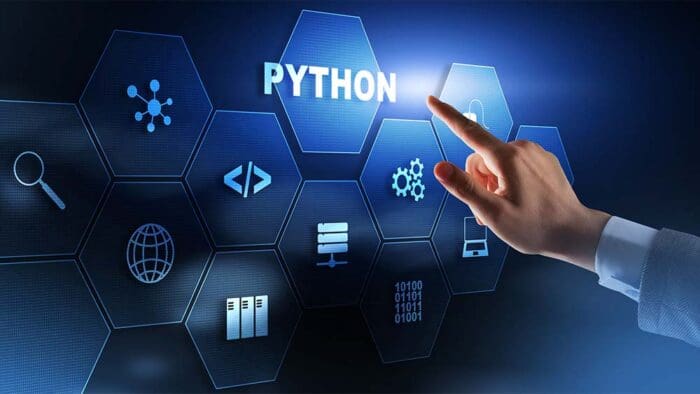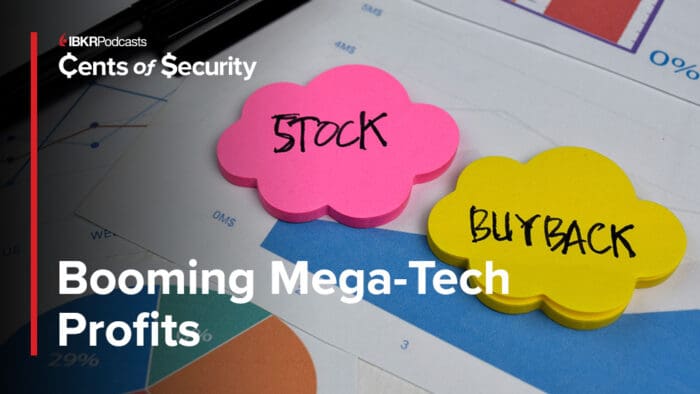You may have heard about stock buybacks but how do they benefit the investor and the company? Are they a good thing? Why a buyback and not a dividend? Christine Short, Head of Global Corporate Events Research at Wall Street Horizon, a TMX Company joins Cassidy Clement, IBKR’s Senior Manager of SEO and Content to discuss.
Summary – Cents of Security Podcasts Ep. 53
The following is a summary of a live audio recording and may contain errors in spelling or grammar. Although IBKR has edited for clarity no material changes have been made.
Cassidy Clement
Welcome back to the Cents of Security podcast. I’m Cassidy Clement, Senior Manager of SEO and Content at Interactive Brokers. Today, I’m your host for our podcast and our guest is Christine Short, Head of Global Corporate Events Research at Wall Street Horizon, which is a TMX company.
You may have heard about stock buybacks, but how do they benefit the investor and the company? Are they even a good thing? Why a buyback and not a dividend? We will cover all these questions and more. Welcome back to the program, Christine.
Christine Short
Thank you so much for having me.
Cassidy Clement
Sure! So just to go right into it, what exactly are stock buybacks? Because you hear that as a buzzword a lot, especially after you start to see filings of different financial information, maybe businesses, corporations may have a lot of cash may have made a lot of revenue or the opposite. What exactly are these buybacks?
Christine Short
Yeah. And it’s good point. We’ve just gone through another earnings season. So a lot of companies also announced their buyback plans on those calls. So you might be wondering, like you said, what is a buyback? And very simply, it’s exactly like it sounds like.
It’s a stock buyback or otherwise known as a share repurchase. Takes place when a company buys back its own stock. They can either buy back stocks directly from the marketplace, or they can offer shareholders the option of selling back their shares directly to the company, usually at a specific price within a specific time frame. There’s usually an end date on those that’s known as a tender offer.
And they can fund it a few different ways. A lot of them you mentioned cash on hand. A lot of companies have a lot of cash right now on their balance sheets and that’s one way they would pay for this or fund the stock buyback.
They can also do so by taking a debt or they can do so with cash flow from operations. Stock buybacks can be open-ended, so over the next five years, ten years, or they can have a very specific end date.
So there’s a lot of different ways to structure them, but at the core it’s just a company going out and buying back their own stock. Taking those outstanding shares off the market.
Cassidy Clement
Going to create some value in some way for themselves or the investor and there’s different reasons that that may occur. You mentioned there can be a lot of cash. As we came in earnings season, we saw a bunch of different reports of new records for different companies and then also, what companies need to roll it back a little bit.
So is there a certain signal that a company would look at and go oh, we might need to issue stock buyback. What would beginner investors look at and say oh, that might be a reason that a buyback would be issued.
Christine Short
So, some companies are just regular share repurchases, right? And so if you’re a beginning investor, you might learn what some of these companies are, and there might not even need to be a reason. It’s just they see as an efficient tool to return value to shareholders.
So we’ll get into some examples a little later in the podcast.
But there are names that are regularly doing these. If you’re trying to look at an entry point of a company that oh, this company might need to tee up a buyback, you’d usually look at companies that were seen as undervalued, because that is one of the main reasons why companies will start share repurchase program is because they feel their stock is undervalued.
Well, how do you know if a stock is undervalued?
We typically look at valuation ratios. There’s a ton of them, but there are some very popular ones that your listeners may have heard of. And different companies will do use different valuation metrics that they deem are most telling of their intrinsic value. But a couple of the most popular ones right off the top, the price to earnings ratio, there’s two iterations of this. The trailing price to earnings and the forward P/E ratio.
And basically that just is calculated by dividing a stock’s current share price by, in the case of the trailing, the past 12 months of actual earnings per share. For the forward it would be the stock share price by the companies forecasted earnings per share, forecasted, of course, by analysts. You would then look at these valuation metrics and say, hey, the forward or the trailing are above what I see for other peers in the sector or above the sector average. This might be overpriced. But if they’re well below, you might say well, that’s actually underpriced. That’s undervalued.
This might be a company that’s considering a stock buyback because they believe their shares are undervalued. Some other valuation metrics, there’s something called the EPS yields or earnings yields and you would take the earnings per share divided by the share price.
The higher the earnings yield, the more likely it is that those stocks are undervalued. There’s the price to book ratio. That’s just again taking the price divided by book value. Book value is more or less the money that would be paid to shareholders in a liquidity event. So there’s a lot of these.
You can look at forward earnings growth, forward revenue growth, compare it to other peers in the sector. Beyond valuation metrics, if I’m kind of looking at a name and saying, hey, is this a company that might do a share buyback soon? I might want to look at who’s buying, right, because there’s a lot of very successful, well-known investors, Warren Buffett being one of them, that target undervalued stocks.
So if I see one of these investors kind of piling in, I might say perhaps this is a target for a stock buyback because it’s undervalued. Or insider buying. When a company’s insiders, folks within the company are really buying back stock, what does that say to me? Is that perhaps undervalued?
The last thing you might want to look at is, has the stock meaningfully declined? And you’re not really sure why. Maybe the catalyst doesn’t seem fully warranted. So has it really declined to the point where now I think that’s undervalued?
So, companies themselves will look at all of these things when determining if it’s the right time for a stock buyback.
Cassidy Clement
With all of that that you mentioned, there’s really a lot that goes into this consciousness of the shareholders. They’re trying to create value for their shareholders and trying to do what is best for both their stock price, their shareholders, their company, etcetera.
But most people, when they hear all of those signals that you mentioned, they may say, well, you know, when I took a finance and economic course, I thought dividends were the way that we may establish value for our shareholders if they were running a board or something like that.
So that’s a big question that I saw come up in my research when I was looking up some of the more intermediate level questions about stock buybacks. So, really, the dividend versus the share buyback, I mean obviously the dividends get distributed after the profit, where the share buyback is a little bit more a process of reducing the amount of shares there. But the value kind of stays the same.
So if you were to just explain the differences and then also explain why companies would go for the buyback versus the dividend to create the value for the shareholders? Because I’m sure anybody who’s listening that is past the beginner level and a little more on the intermediate, that may have been their first lightbulb moment.
Christine Short
Yes. And you’re right. The two main ways companies return value to shareholders are through buybacks and through dividends. And a company might choose one over the other. A lot of companies do both. But to get back to why would a company use a buyback? Well, they think their shares are undervalued and they’re trying to boost growth. Really, that’s the goal of a buyback, right? To boost growth. To boost the share price. Regular buybacks steadily reduce the number of outstanding shares, which then boosts the earnings per share growth rates and hopefully drives prices.
But to your point, the dividend is a little more of a sure thing, right? They issue, we’re going to give you $0.50 back per share, so you can count on getting that amount. You’re not always guaranteed to see share prices increase with the share buyback. So by doing so, you’re hoping that restricting the supply is going to increase the demand or that’s what the company is hoping. Doesn’t always maybe work out that way, so dividends are a little more of a sure thing.
But like you said, it’s after profits. It also comes with the tax implication. When you file your taxes at the end of the year, you pay taxes on those dividends. 15 to 20%. So you are paying taxes on those. There’s not as much flexibility there.
For buybacks, they provide a little bit of a greater flexibility, certainly in the tax realm because you don’t pay taxes on those buybacks until you sell the shares. You’re more guaranteed, I guess, to return shareholder to investors with the dividend because you’re actually saying what the amount is. You’re not quite sure what the impact of a buyback is going to be, but you are getting that greater flexibility.
Cassidy Clement
So when we go into the mathematical side, not to go too deep, but how exactly is the total of that stock buyback determined? Is there a basic equation that goes into the value of the buyback?
Or is it a more nuanced way that companies determine how much to buy back based on their circumstance?
Christine Short
Couple different questions there. If an investor is looking to understand how much did that company buy back, they would just multiply the number of shares that were purchased that the company makes public and buy the repurchase price.
From the company side, how do they determine how much to buy back? Well, like I said, some of this is sort of a regular occurrence for certain companies. So they had to kind of have it worked out how much they’re going to do each year. Or each quarter over which time frame.
For those that have determined, ok, we need to do a stock buyback to boost the price of our shares to boost EPS growth, well, let’s start by saying it depends what the company’s goal is with the buyback.
So if the company is trying to boost EPS growth, trying to boost the share price, they know what their current earnings are, they just need to decide by how much they want to boost growth.
Let’s it’s by 5 percentage points. How much do we need to reduce outstanding shares? So in that equation with earnings over outstanding shares, to get earnings growth higher, what number do we need to bring those outstanding shares down too? So it’s not necessarily that simplistic, but they have an idea of what their earnings are or what their forecasted earnings are. And they know how many outstanding shares are. So they can kind of manipulate that calculation a little bit.
If their goal is to shift their capital structure, let’s say they want to include a higher percentage of debt, they want to bring debt from 30% to 40%, for example, well, they would need to understand how much they would need to exchange to reach that level of debt by repurchasing the correct number of shares.
So it gets a little iterative though. Because we know that repurchase will likely boost the value of the remaining equity, so they need to understand how much to buy to get to that desired level of debt.
If the primary goal is to just send a signal to investors about the financial health of the company or to return value to shareholders, there’s a different calculation involved. The kind of decision for the size of the buyback might be the materiality level. So that’s a number that measures how much is the impact of the buyback going to have on the wealth of shareholders that decide to keep their shares?
And the materiality level for any given number of shares the company might buy back depends on the degree to which the market currently undervalues the company. So there’s obviously a lot of moving numbers that go into play, but first they need to determine what’s the goal and how do we get to that goal?
By implementing this plan, how might it shift the market reaction to it? And then we’ll have to shift our expectations.
But again, all of that kind of goes into the decision of what’s the total number that we want to repurchase? What’s the time frame? And again, knowing that there’s flexibility in that, so they have a bit of wiggle room. So if they don’t get the desired outcome, perhaps they change the time frame or the tranches that they repurchase in.
Cassidy Clement
Since we’ve gone through now the basic foundational ideas within buybacks, a little bit of the basic formulas that are used or just the general idea or theory behind it, a lot of people may not have realized that really popular stocks that are in any finance 101 homework or the stock tickers that you see every day on the financial TV network you might watch or the podcast you might listen to, it’s actually fairly common. And there’s a lot of examples of well-known stock buybacks.
So as somebody who has written in the space and has a lot of experience, what are some big news stories or examples or headlines over the years for buybacks that listeners might be familiar with?
Christine Short
It’s a great time to talk about this because a couple weeks ago during Apple’s earnings call, they announced their stock buyback and it is the largest in U.S. history. They actually beat their former record of having the largest buyback in history, so $110 billion stock buyback plan. Their shares popped 8%.
And I have to say, a lot of it was likely due to that. Again, I think they got the response they wanted on that share buyback plan, but they are one that are always in the news. They’re constantly and they have been doing these very large buyback programs for several years now.
And as you said, if these types of names, the Mega-Cap tech so behind at Apple, if you look over the last decade or so, who are the largest share repurchases? It’s Alphabet, it’s Meta, it’s Microsoft. Those are all in the top five.
And they all seem, you know, Apple in particular sees it as an effective way to distribute profits back to those that own their stock.
In addition to dividends, they have regular payouts to shareholders as well. In the list that I mentioned, only Microsoft also does regular dividend payouts. Alphabet and Meta actually just initiated paying dividends this year, so they weren’t using both of those tools to return value to shareholders. They were mainly just using buy backs.
But Apple and Microsoft have been doing both of those pretty regular intervals. But yeah, Exxon is another one. I mean, like you said, all of the very large cap names that you are likely familiar with have this going on on a regular basis. They are constantly repurchasing or announcing share repurchase programs.
Cassidy Clement
Like you said, these big companies who are making milestones in revenue and different financial metrics, even they’re doing it to create this value and utilize their cash from their balance sheet at the time because it might work best for their circumstance.
And anybody who’s been following Apple for a while knows they’re doing pretty good. So they’re going to surprise you here and there with things like that. But it’s also interesting in that list that a good chunk of American tech sector companies, but that’s the biz to be in right now.
But the big part that you mentioned, which is how that looks to the market and how that then looks to the investor who has that in their portfolio.
When these things occur, these buybacks, what is the general stock market impact or investor impact? Obviously it’s circumstantial, but what is it generally doing when the news breaks?
Christine Short
Well, as you know, stocks trade in part based on supply and demand and if you cut the number of those outstanding shares, that often causes a price increase. Companies can create a supply shock by doing a repurchase and then the hope is that the demand keeps up, right? And that the price goes up.
So the impact in the market would be likely that the price of the companies announcing the repurchase would go up. The impact on the investor, well, hopefully if the share price goes up, that increases the value of the stocks that the shareholder has.
And that if they continue to hold on to them that that will continue to go up. So for the shareholder, obviously it’s typically a good thing because it increases the value of what they already own.
Cassidy Clement
In a general sense, it seems like it could be a positive thing, but let’s look at it from both sides of the spectrum here. From the individual perspective, is there such a thing as a good buyback or a not good buyback? And then I guess kind of the same thing for the business. Is there a negative reason that they would have to issue a buyback or anything like that?
Christine Short
I think it’s a very hotly debated topic because yes, generally a buyback is seen as a good thing. They say, hey, there’s probably a better way these companies could be using their cash, right? Especially the names we just listed. They have a ton of cash and so investors will also want to see what else are they doing with this cash? Like they have nothing better to do but buy back their own shares? Why aren’t they investing in research and development, product development, things of that nature?
So yes, we’re returning value to shareholders, great. If it improves the price of the stock, wonderful. But investors will also want to see where else is that money going. And businesses themselves have to take a deep look inside and say, is this kind of the lazy use of our cash?
It’s certainly become, again, a hot topic because there are proposed taxes on corporate stock buybacks. President Biden has said he wants to encourage long term investments instead, and there are many that say a stock buyback isn’t actually increasing the efficiency or productivity of the firm. It’s just returning value to typically very large owners. So yes, we all benefit, but certainly the largest insiders, the largest investors, kind of just giving yourself a pat on the back, right, if you’re on the C-Suite in some of these companies, so that’s the criticism there.
And again, the criticism that, hey, they couldn’t have thought of a better way to use this money. But in the case of the names we mentioned, those mega tech companies, well, they’re doing all of it, right? Like they have so much cash that they don’t need to use all of that cash flow just to invest in the business. And that’s true of those names for sure.
So they’re not only buying back stock, but they also are heavily investing in R&D. But you want to distinguish between where is the cash going? So as an investor, are they still investing back in the business? Is this a productive business? Or are they just have run out of ideas of what to do with their cash on hand?
So economists debate this constantly, now with potential taxes on the horizon for companies that do stock buybacks, the whole landscape might change. But overall, if you’re an investor, I would say it’s typically seen as a good thing, but you also want to see the companies reinvesting in itself as well.
Cassidy Clement
That’s a really great point of self-reinvestment. Anybody who likes to be the financial metric nerd and you want to dig into that, you’ll notice in a lot of these mega tech companies the cash is honestly sometimes unfathomable that they end up with. It’s like the GDP of a small country. And you’re looking at it like, what are we going to do with this? How is this going to get applied and what new products are coming out? Etcetera. But then you also want to look at it and think, ok, are there actually any management issues? Is there a reason that this is being bought back? Are the stocks actually at a good price right now? Where are we at in the timeline of these companies? There’s a lot of different ways to create value, and then there’s also the tax implications that go along with it that vary depending on how much you’re buying back.
But you brought up some great points today. Thanks for joining us, Christine.
Christine Short
Thank you so much for having me.
Cassidy Clement
Sure. So as always, listeners can learn more about an array of financial topics for free at www.interactivebrokers.com. Follow us on your favorite podcast network and feel free to leave us a rating or review. Thanks for listening everyone.
Join The Conversation
For specific platform feedback and suggestions, please submit it directly to our team using these instructions.
If you have an account-specific question or concern, please reach out to Client Services.
We encourage you to look through our FAQs before posting. Your question may already be covered!
Leave a Reply
Disclosure: Interactive Brokers
The analysis in this material is provided for information only and is not and should not be construed as an offer to sell or the solicitation of an offer to buy any security. To the extent that this material discusses general market activity, industry or sector trends or other broad-based economic or political conditions, it should not be construed as research or investment advice. To the extent that it includes references to specific securities, commodities, currencies, or other instruments, those references do not constitute a recommendation by IBKR to buy, sell or hold such investments. This material does not and is not intended to take into account the particular financial conditions, investment objectives or requirements of individual customers. Before acting on this material, you should consider whether it is suitable for your particular circumstances and, as necessary, seek professional advice.
The views and opinions expressed herein are those of the author and do not necessarily reflect the views of Interactive Brokers, its affiliates, or its employees.
Disclosure: IBKR Tax Disclosure
Interactive Brokers does not provide tax advice, does not make representations regarding the particular tax consequences of any investments, and cannot assist clients with tax filings. Investors should consult with their tax professional about the tax implications of any investment.

















Great video, guys! Thank you!
We hope you continue to enjoy IBKR Podcasts!